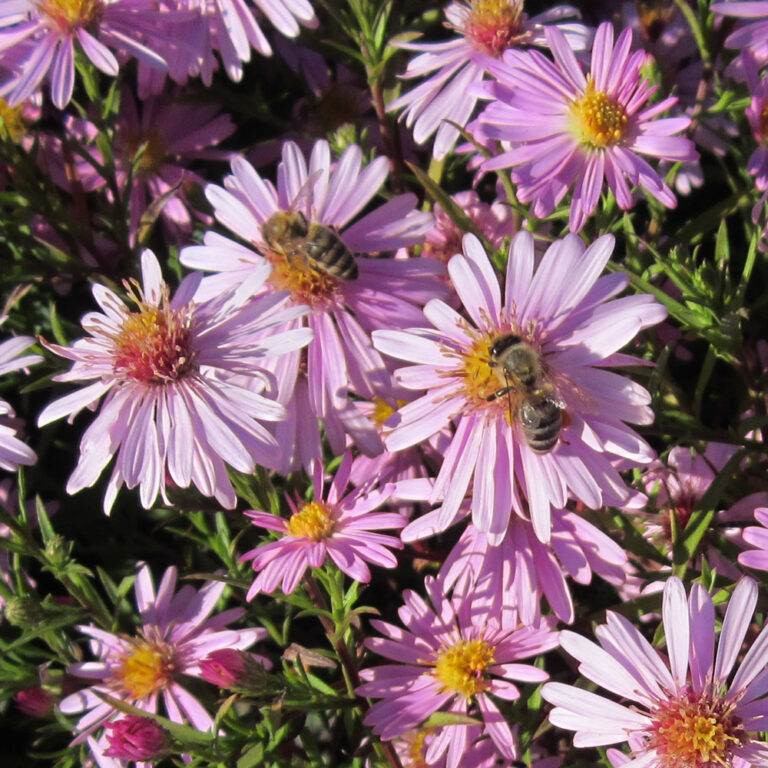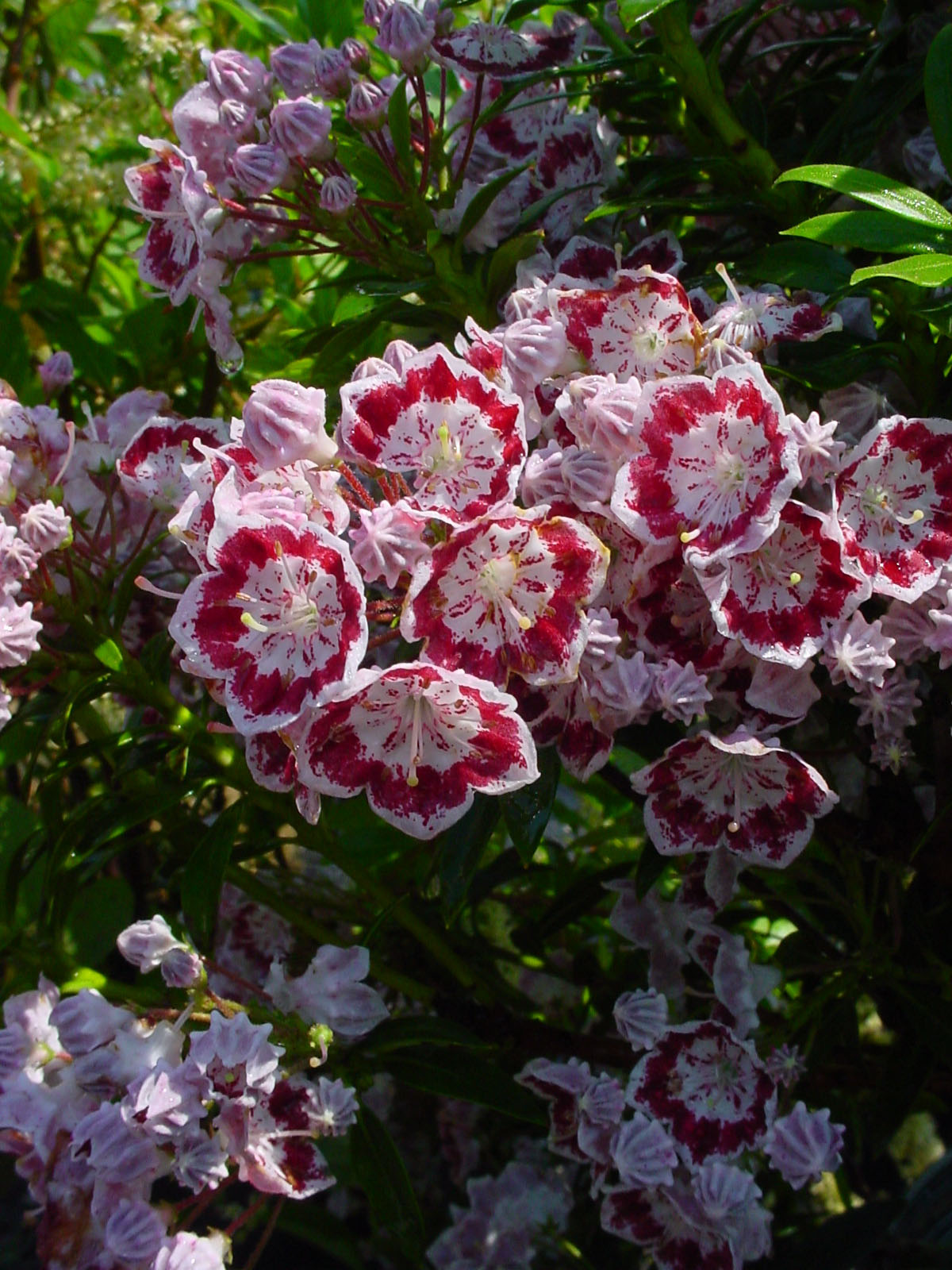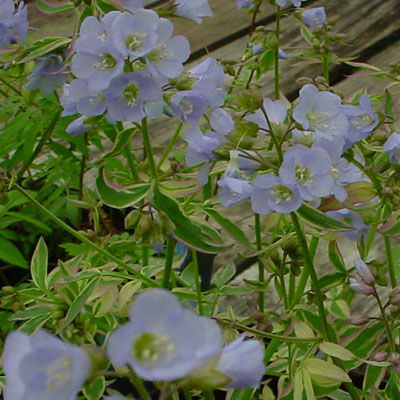Bee a Pollinator Provider

Bee-Attracting Plant List
The following list shows bloom periods for bee-attracting plants. Try to have something blooming from late winter through late fall to encourage all our native pollinators and honey bees. When selecting plants for your Bee Landscape, know that some species need more sun or moisture than others. Here’s a link for garden plans to attract bees developed for Howard County, Maryland. The plans will help you find a pollinator garden for your growing conditions.
Once you understand your growing conditions, visit Ward’s Nursery with an outline of what you need. These plants are available at Ward’s usually right before and during their bloom time. Click here for a printable PDF file.
Or download this chart of pollinatory-friendly, Northeast native plants. The chart includes light and moisture requirements.
BLOOM TIME for HARDY TREES and SHRUBS (MOSTLY NATIVE):
LATE WINTER – EARLY SPRING
- Acer sacharum or Acer pensylvanicum – Maple- Sugar or Striped
- Hamamelis vernalis – Early spring-blooming Witchhazels
- Salix – Willows like Pussy Willow (discolor) or Black Willow (nigra)
- Viburnum acerifolium –Mapleleaf Viburnum
- Viburnum cassinoides– Witherod Viburnum
- Viburnum dentatum– Arrowwood
- Viburnum lentago—Nannyberry
- Viburnum opulus var.-American Cranberrybush
SPRING
- Amelanchier canadensis – Serviceberry
- Aronia melanocarpa – Black Chokeberry
- Cephalanthus occidentalis – Buttonbush
- Lindera benzoin – Spicebush
- Liriodendron tulipifera – Tulip tree
- Malus ‘Golden Raindrops’ – Golden Raindrops crabapples
- Malus ‘Snowdrift’ – crabapple with good fall color, too.
- Vaccinum corymbosum –Highbush Blueberry
- Fruit-bearing trees like, apples, cherries, peaches and pears
LATE SPRING – SUMMER
- Clethra alnifolia—Summersweet
- Cornus amomum –Silky Dogwood
- Cornus racemosa — Gray Dogwood
- Cornus sericea – Red-twig Dogwood
- Ilex glabra – Inkberry
- Ilex verticillata– Winterberry
- Kalmia latifolia – Mountain Laurel
- Lonicera sempervirens– Honeysuckle (vine)
- Oxydendrum arboreum – Sourwood
- Physocarpus opulifolius – Ninebark
- Rosa palustris — Swamp Rose
- Rhododendron viscosum — Swamp Azalea
- Rubus odoratus — Purple-Flowering Raspberry
- Rhus aromatica – Fragrant Sumac
 Mountain Laurel appreciates some light shade.
Mountain Laurel appreciates some light shade.
FALL
- Hamamelis virginiana – Fall-blooming Witchhazel
Bloom Times for PERENNIALS and EASY ANNUALS
LATE WINTER – EARLY SPRING (best planted in fall before ground freezes)
- Crocus
- Chionodoxa – Glory of the Snow
- Hellebore –Lenten Rose (available in spring to be planted after thaw).
SPRING
- Aurinia saxitalis — Basket-of-Gold
- Ajugas
- Doronicum- Leopard’s Bane
- Polemonium caeruleum – Jacob’s Ladder
- Dicentra – Bleeding Heart
- Dandelions!!
- Papaver orientale – Oriental Poppy
 Variegated Jacob’s Ladder
Variegated Jacob’s Ladder
EARLY to MID SUMMER
- Agastache foeniculum — Anise Hyssop
- Alliums (chives can be allowed to bloom and then cut back)
- Asclepias – Milkweed family, including Butterflyweed
- Cosmos
- Centaurea montana –Mountain Bluet or Bachelor’s Button
- Echinops – Globe Thistle
- Geranium – Crane’s bill
- Lavandula angustifolia ‘Hidcote’ or ‘Munstead’- Hardier Lavenders
- Mertensia virginica – Virginia Bluebells
- Monarda didyma- Bee Balm (limited attraction to honeybees)
- Monarda fistulosa – Bergamot
- Salvias – Sages
- Thymus sp. -Thymes (cut back for re-bloom)
LATE SUMMER
- Boltonia asteroids – Boltonia or false chamomile
- Echinacea – Coneflower
- Eupatorium maculatum- Joe-Pye Weed
- Helianthus annuus – Common Sunflower (choose heirloom varieties, not fancy pollen-less varieties)
- Herb flowers, including borage, oregano, mints and rosemary – (hold basil for late autumn bloom.)
- Perovskia – Russian Sage
- Phlox davidii – Summer Phlox
- Potentilla – Beardtongue
- Solidago canadensis – Golden Rod
AUTUMN
- Aster novae-angliae – Native Asters
- Clematis – Sweet Autumn – vine
- Colchium autumnale – Autum-blooming Crocus (simple variety)
- Dendranthemum – Hardy Chrysanthemum
- Eupatorum rugosum – White Snakeroot
- Sedums
ALMOST ANYTIME
- Heathers and Heaths (There are winter blooming varieties, too!)
- Celebrate the dandelions and white clover! Bees love ‘em!
Information and Plant lists selected from numerous sources:
- Fiddlehead Creek, Native Plants, Hartford, NY. Fiddleheadcreek.com
Green, Ruth. Green Arts Gardens, Monterey, Massachusetts.
Kujawski, Ronald. Massachusetts Garden Writer and Consultant, Great Barrington, Massachusetts.
http://www.orchardbees.com/NativePollinators.html
Rice, Grai St. Clair, HoneybeeLives.org. HoneybeeLives teaches Organic Beekeeping and provides apiary services with Bee Doctor Chris Harp. - Thanks to John Faivre, Herb ‘n Renewal, for presenting “Bee-Keeping and Bee-Health” on March 12, 2016.
Our Summer Garden Advice
By mid-summer, perennial gardens can start to look overgrown, annual flowers begin to fade, and bugs may be munching on your vegetables.
Summer Articles